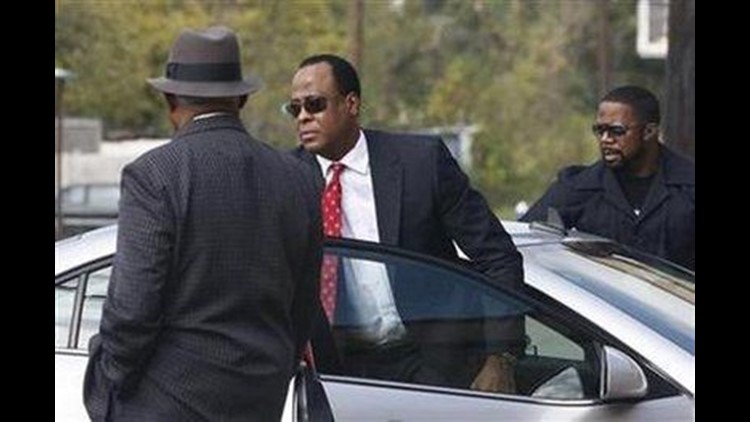LOS ANGELES (AP) – Michael Jackson's doctor was charged Monday with involuntary manslaughter, capping an exhaustive investigation into the pop star's stunning death last summer and setting up the prospect of another sensational celebrity courtroom drama.
Dr. Conrad Murray, a cardiologist who was with Jackson when he died June 25 at his rented Los Angeles mansion, is accused of acting "unlawfully and without malice" in bringing about Jackson's death, according to a complaint filed by prosecutors.
The complaint said Murray acted "without the caution and circumspection required" when he administered a powerful sedative to Jackson in an effort to help him sleep.
The charge was expected, and Murray's attorney, Ed Chernoff, said his client planned to surrender to authorities later Monday.
"We'll make bail, we'll plead not guilty and we'll fight like hell," Chernoff said before the charge was filed.
Jackson hired Murray to be his personal physician as he prepared for a series of strenuous comeback concerts in London. Officials say the singer died after Murray administered the powerful general anesthetic propofol and two other sedatives to get the chronic insomniac to sleep.
Los Angeles investigators were methodical in building a case against Murray, wary of repeating missteps that have plagued some other high-profile celebrity cases, most notably O.J. Simpson and actor Robert Blake, both of whom were acquitted of murder.
After reviewing toxicology findings, the coroner ruled Jackson's death at age 50 a homicide caused by acute intoxication of the powerful anesthetic propofol, with other sedatives a contributing factor.
Propofol is only supposed to be administered by an anesthesia professional in a medical setting, because it depresses breathing and heart rate while lowering blood pressure.
Murray appears to have obtained the drug legally and its use is not in itself a crime. To show the doctor was negligent in his care, detectives spoke to more than 10 medical experts to see if his behavior fell outside the bounds of reasonable medical practice.
According to court documents, Murray told police he administered propofol just before 11 a.m. then stepped out of the room to go to the bathroom.
There is some dispute about what happened next. According to court filings, Murray told police that upon his return from the bathroom, he saw Jackson was not breathing and began trying to revive him.
But an ambulance was not called until 12:21 p.m. and Murray spent much of the intervening time making non-emergency cell phone calls, police say. The nature of the calls, which lasted 47 minutes, is not known.
Murray's lawyer has said investigators got confused about what Murray had told them, and that the doctor found his patient unresponsive around noon.
The investigation included several agencies, including the Los Angeles Police Department, the district attorney's office and the federal Drug Enforcement Administration.
Many witnesses have been interviewed by police, including those who were present during Jackson's last days, those who worked with him in preparation for his series of comeback concerts, "This Is It," and members of his personal entourage, including his security guard and personal assistant.
Copyright 2010 The Associated Press.



